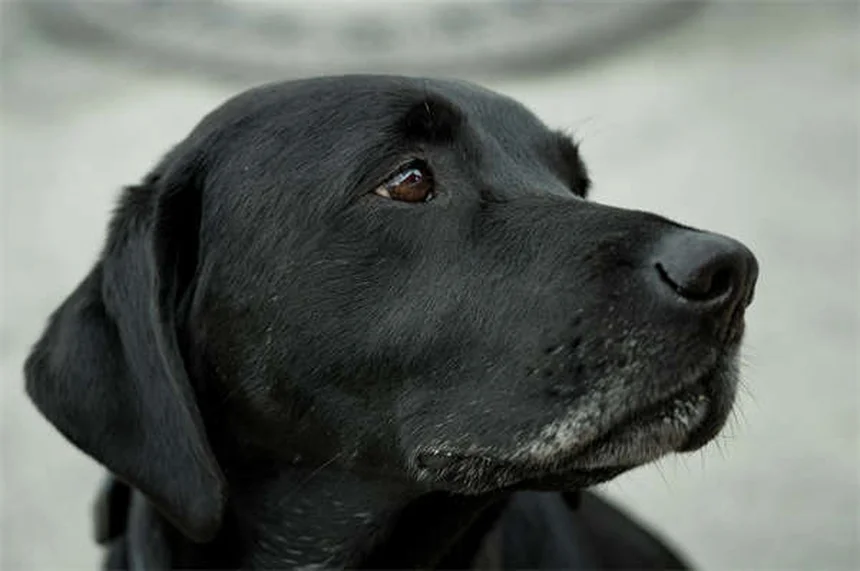Senior Dog Care: 5 Essential Tips from a Veterinarian
Senior dog care can feel overwhelming, but here's the good news: you're not alone in this journey! As a vet with over a decade of experience, I'm here to break down the essentials of keeping your aging pup happy and healthy. The answer to How do I best care for my senior dog? is simpler than you might think: focus on preventative care, proper nutrition, and recognizing subtle changes.Let me share what I tell all my clients - those golden years can be some of the most rewarding with your dog. Yes, vet bills might increase and you'll need to adjust exercise routines, but with the right approach, you can significantly improve your dog's quality of life. We'll cover everything from affordable care options to that CBD oil question everyone's asking about.One thing I've learned? Every senior dog is unique. Your neighbor's 12-year-old lab might still act like a puppy, while your 9-year-old rottweiler might need extra joint support. That's why personalized care is so important - and why I always recommend working closely with your vet to create a plan tailored to your dog's specific needs.
E.g. :Why Do Dogs Love Squeaky Toys? 3 Surprising Reasons Explained
- 1、Affordable Vet Care for Senior Pets
- 2、CBD Oil for Senior Pets: What We Know
- 3、Exercise for Aging Dogs
- 4、Supplements for Senior Dogs
- 5、Health Screenings for Senior Pets
- 6、Understanding Your Senior Pet's Changing Needs
- 7、The Hidden Benefits of Senior Pet Adoption
- 8、Nutritional Needs That Change With Age
- 9、Mental Stimulation for Aging Brains
- 10、End-of-Life Care Considerations
- 11、FAQs
Affordable Vet Care for Senior Pets
Payment Plans and Insurance Options
Let's be real - vet bills can hit your wallet hard, especially when your senior dog needs more frequent checkups. But here's the good news: you've got options to make veterinary care more affordable!
Think of pet insurance like a safety net. While most plans won't cover pre-existing conditions (that arthritis your golden retriever developed last year?), they can be lifesavers for new health issues that pop up. Some even offer wellness packages - though you'll pay extra for those. Here's a quick comparison of two popular options:
| Option | Coverage | Best For |
|---|---|---|
| Traditional Pet Insurance | New conditions, some wellness care | Unexpected illnesses/injuries |
| Discount Plans (like Pet Assure) | Percentage off all services | Routine care and known conditions |
Finding Financial Assistance
Did you know the Humane Society keeps a running list of organizations that help pet owners in need? I always tell my clients - don't be shy about asking for help. Your vet's office might know about local programs too!
CBD Oil for Senior Pets: What We Know
 Photos provided by pixabay
Photos provided by pixabay
The Current Research
So you're curious about CBD oil for your old pup's creaky joints? You're not alone! While the science is still catching up, a 2018 study showed promise - 10 senior dogs with arthritis saw real improvement in pain and mobility.
But here's the million dollar question: Is CBD the miracle treatment some claim it to be? The honest answer? We need more research. Those initial results are exciting, but we don't have enough data yet to say for sure.
Other Proven Therapies
While we wait for more CBD studies, don't forget about the treatments we know work:- Weight management (less weight = happier joints)- Supplements like omega-3s and glucosamine- Alternative therapies like acupuncture
My golden rule? If you're trying something new, always check with your vet first - especially with senior pets who might be on other medications.
Exercise for Aging Dogs
The Benefits of Walking
That daily walk with your senior dog? Keep it up! Regular walks do wonders for both body and mind. I've seen 14-year-old labs who act like puppies after their morning stroll.
But here's something many owners miss - mental stimulation is just as important as physical exercise for older dogs. That sniff around the neighborhood? It's like reading the morning paper for your pup!
 Photos provided by pixabay
Photos provided by pixabay
The Current Research
Now about your "cranky" 14-year-old... Is grumpiness normal for senior dogs? Sometimes. But here's what keeps me up at night: Could that grumpiness actually be pain your dog isn't showing the vet?
Senior pets are masters at hiding discomfort. If your normally sweet dog starts snapping during walks, that's your cue to investigate further. A pain medication trial might be worth discussing with your vet.
Supplements for Senior Dogs
Building a Strong Foundation
Before we talk supplements, let's start with the basics - a high-quality diet. Think of it like building a house: you need a solid foundation before adding fancy upgrades. A complete senior formula should cover most nutritional needs.
That said, many older dogs benefit from joint support. The supplement aisle can be overwhelming, so here's my cheat sheet of ingredients to look for:
- Glucosamine hydrochloride
- Omega-3 fatty acids
- Turmeric extracts
- Green-lipped mussel
Customizing Supplement Plans
Remember my Rottweiler patient last week? Her needs were completely different from the dachshund I saw that afternoon. That's why I always stress - there's no one-size-fits-all solution for senior dogs.
Your vet can help tailor a plan based on your dog's specific health profile. Maybe it's joint support today, but next year we might be talking about kidney or heart health supplements.
Health Screenings for Senior Pets
 Photos provided by pixabay
Photos provided by pixabay
The Current Research
Here's an analogy I use with my clients: catching health issues early is like fixing a small leak before your whole basement floods. Those "senior panels" might seem expensive, but they're often cheaper than treating advanced disease.
For most senior dogs, I recommend:- Complete blood count (checks for anemia, infection)- Chemistry panel (kidney, liver function)- Urinalysis (early kidney disease detection)
Beyond the Basics
Depending on your dog's breed and history, we might add:- Thyroid testing- Blood pressure checks- X-rays or ultrasound
The bottom line? Don't wait until you notice problems. That annual checkup could add years to your best friend's life - and save you money in the long run!
Featured Image: iStock.com/LightFieldStudios
Understanding Your Senior Pet's Changing Needs
The Emotional Side of Aging Pets
You know what's wild? Our senior pets often mirror our own aging process - just at warp speed. One day they're chasing squirrels, the next they're moving a bit slower. But here's something most folks don't talk about enough: the emotional changes in older pets.
I've seen the sweetest golden retrievers turn into grumpy old men overnight. But is it just "getting old"? Not always. Imagine if you had constant joint pain but couldn't tell anyone - you'd be cranky too! That's why we need to look beyond the surface behavior.
Creating a Senior-Friendly Home
Let's talk about making your home more comfortable for your aging buddy. You wouldn't make your grandma sleep on a hardwood floor, right? Same goes for your senior dog.
Here are some simple upgrades that make a world of difference:- Orthopedic beds (memory foam is magic for achy joints)- Non-slip rugs on hardwood floors- Raised food and water bowls (easier on the neck)- Pet stairs or ramps for furniture access
And here's a pro tip: if your dog struggles with stairs, try placing treats on each step to encourage gentle exercise while building confidence.
The Hidden Benefits of Senior Pet Adoption
Why Older Pets Make Perfect Companions
Ever considered adopting a senior pet? I know, I know - everyone wants a puppy. But let me tell you about Mr. Whiskers, the 10-year-old cat I adopted last year. Best decision ever!
Senior pets come with some amazing perks:- Already house-trained (no surprise puddles!)- Calmer temperament (perfect for apartment living)- Established personality (what you see is what you get)- Often overlooked, so shelters give extra discounts
And get this - many senior pets actually have lower lifetime medical costs than puppies when you factor in all those early-life vaccinations and spay/neuter surgeries.
Special Considerations for Senior Adoptions
Now, I'm not saying senior pets don't come with challenges. You'll want to ask the shelter some key questions:
| Question to Ask | Why It Matters |
|---|---|
| Known medical conditions? | Helps budget for future care |
| Current medication routine? | Maintains stability during transition |
| Behavior around other pets? | Prevents stressful introductions |
Remember, adopting a senior pet isn't about the quantity of time - it's about making their golden years truly golden.
Nutritional Needs That Change With Age
The Protein Paradox
Here's something that might surprise you: Do senior pets really need less protein? The old-school answer was yes, but newer research tells a different story.
Turns out, older pets often need more high-quality protein to maintain muscle mass. The key is finding easily digestible sources like chicken, fish, or eggs. But here's the catch - pets with kidney issues might need specialized formulas. That's why working with your vet is crucial.
Hydration Hacks for Senior Pets
Dehydration sneaks up on older pets faster than you'd think. Their sense of thirst diminishes, and kidney function naturally declines. I've got some simple tricks to keep your pet hydrated:
- Add warm water to kibble (makes a tasty gravy!)- Place multiple water bowls around the house- Try a pet water fountain (the movement attracts drinkers)- Offer ice cubes as treats (great for summer months)
And here's a fun fact: cats in particular often prefer drinking from wide, shallow bowls that don't touch their whiskers. Who knew?
Mental Stimulation for Aging Brains
Keeping Those Neurons Firing
You've heard "use it or lose it" applies to human brains? Same goes for pets! Cognitive decline in senior animals is real, but we can slow it down.
Try these brain games:- Hide treats in puzzle toys (start easy, increase difficulty)- Teach new tricks (yes, old dogs CAN learn!)- Rotate toys weekly to maintain novelty- Create "sniffari" walks where they set the pace
I had a client whose 15-year-old beagle learned to "play dead" - proof that mental exercise keeps them young at heart!
Recognizing Cognitive Dysfunction
Now for the tough stuff. When does normal aging cross into cognitive dysfunction? Watch for these red flags:- Pacing or wandering aimlessly- Staring at walls- Forgetting house training- Changed sleep-wake cycles
The good news? Special diets, supplements, and medications can help manage these symptoms. Early intervention makes all the difference.
End-of-Life Care Considerations
Quality of Life Assessments
This is the conversation no pet owner wants to have, but we need to talk about it. How do you know when it's time? I use the "HHHHHMM" scale with clients:
Hurt - Is pain controlled?Hunger - Eating normally?Hydration - Drinking enough?Hygiene - Can they stay clean?Happiness - Do they enjoy life?Mobility - Can they move comfortably?More good days than bad?
Scoring this weekly helps make objective decisions during emotional times.
Creating Lasting Memories
When the time comes, consider these meaningful ways to celebrate your pet's life:- Paw print keepsakes- Nose print jewelry- Professional photo sessions- Donating to animal charities in their name
And remember - grief is normal and personal. There's no right way to say goodbye to a lifelong friend.
E.g. :Top 10 Questions About Senior Pet Care - Kennel Club LAX
FAQs
Q: Are there affordable vet care options for senior dogs?
A: Absolutely! I completely understand the financial stress of senior pet care - those bills can add up fast. Here's what I recommend to my clients: First, look into pet insurance, but be aware most plans won't cover pre-existing conditions. They can still be valuable for new health issues though. Second, consider discount plans like Pet Assure that offer percentage discounts on all services from network vets. And don't forget to check the Humane Society's list of financial assistance programs - there's often help available if you know where to look. The key is finding the right balance between cost and coverage for your specific situation.
Q: Does CBD oil really help senior dogs with arthritis?
A: This is probably the question I get asked most these days! The short answer is: the research looks promising but isn't definitive yet. A 2018 study showed CBD helped some dogs with arthritis pain and mobility, but we need more data. Here's what I tell my clients: while we wait for more research, don't overlook proven treatments like weight management, omega-3 supplements, and physical therapy. If you do try CBD, please consult your vet first - especially important for senior dogs who may be on other medications. Safety first!
Q: How much exercise does my senior dog really need?
A: Great question! Those daily walks are fantastic for both body and mind - I call them "multivitamins for senior dogs." But here's the thing: there's no one-size-fits-all answer. Your 14-year-old might need shorter, more frequent walks than your 9-year-old. Watch for signs like excessive panting or lagging behind. And don't underestimate mental exercise - that sniffing around the block is like reading the newspaper for your pup! If you notice sudden changes in your dog's willingness to walk, that's a red flag to discuss with your vet.
Q: What supplements should I give my senior dog?
A: Let's start with the basics - a high-quality senior diet should cover most nutritional needs. But many older dogs benefit from joint supplements. Look for products containing glucosamine, omega-3s, or turmeric extracts. Here's my pro tip: supplements work best as part of an overall health plan. Your 9-year-old rottweiler might need different support than my patient's 12-year-old beagle. That's why I always recommend a vet consultation before starting any new supplement regimen - we can help you choose what's right for your dog's specific needs.
Q: What health screenings are essential for senior dogs?
A: Think of senior health screenings like routine car maintenance - they help catch small issues before they become big (and expensive) problems. At minimum, I recommend annual blood work (CBC and chemistry panel) and urinalysis. These can detect early kidney disease, diabetes, and other common senior dog issues. Depending on your dog's breed and history, we might add thyroid testing or blood pressure checks. Remember: early detection means more treatment options and often lower costs in the long run. Your senior dog's health is worth that annual checkup!







